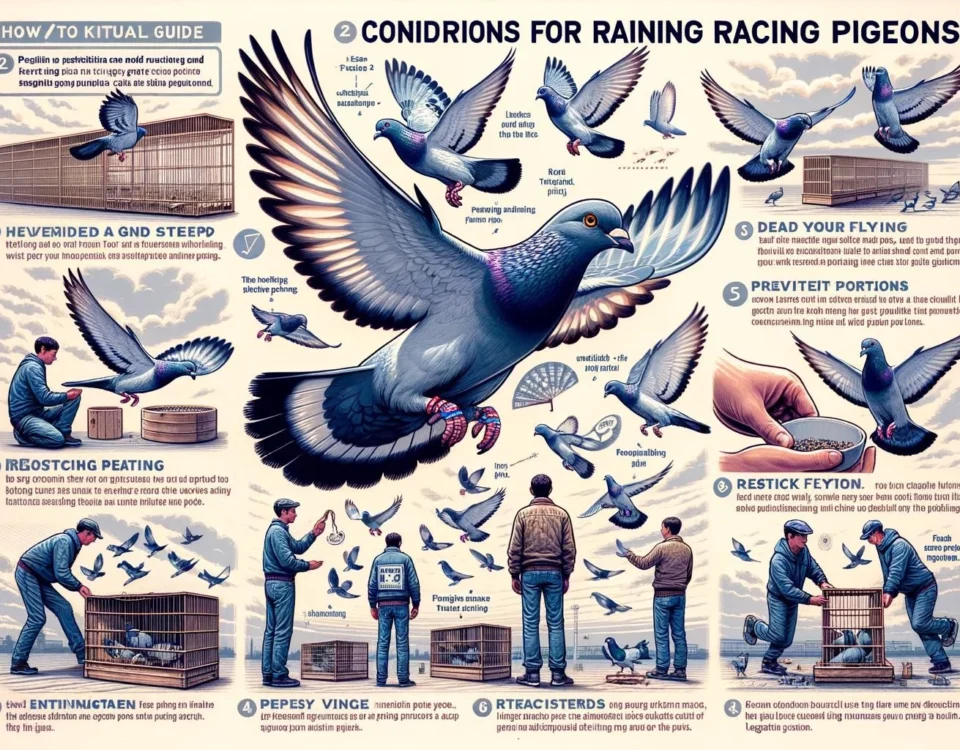Racing pigeons require good health to perform at their best. Proper nutrition, exercise, hygiene, and regular health check-ups are essential for keeping racing pigeons in optimal condition. This article will explore the key aspects of maintaining the health of racing pigeons.
Key Takeaways
- Proper nutrition is crucial for the health of racing pigeons.
- Hygiene and cleanliness in the loft play a vital role in preventing diseases.
- Regular health check-ups and preventative medication can help identify and address health issues early on.
Nutrition and Diet
Nutrition is a fundamental aspect of maintaining the health of racing pigeons. A well-balanced diet ensures that pigeons receive the necessary vitamins, minerals, proteins, and carbohydrates to support their overall well-being and performance. Racing pigeon feed is formulated to provide the essential nutrients needed for pigeons to stay healthy and strong.
Pigeon feed should contain specific ingredients designed to improve digestion and optimize nutrient absorption. Some racing pigeon feeds also include additional supplements such as vitamins and minerals to enhance the pigeons’ overall health.
Hygiene and Cleanliness
Maintaining a clean and hygienic loft is crucial for preventing diseases and promoting the health of racing pigeons. Regular cleaning of the loft and the removal of pigeon waste helps prevent the buildup of bacteria and reduces the risk of infection. Pigeon owners should clean the loft and change the floor covering regularly to maintain a healthy environment for the birds.
Additionally, clean water and feed containers should be provided to prevent the spread of bacteria or fungus. Keeping the loft well-ventilated and free from dampness can also contribute to the overall health of the pigeons.
Health Check-Ups and Preventative Medication
Regular health check-ups and preventative medication are essential for monitoring the well-being of racing pigeons. Routine health examinations help detect any underlying health issues early and allow for prompt treatment.
During health check-ups, veterinarians may perform physical examinations, conduct tests for common pigeon diseases, and provide necessary vaccinations. Preventative medication programs can also help protect racing pigeons from various diseases, such as canker and respiratory infections, which can significantly impact their performance.
Pigeon fanciers are advised to follow a preventative medication program recommended by experienced veterinarians to keep their pigeons healthy and prevent the spread of diseases within their flock.
In conclusion, the health of racing pigeons is crucial for their performance and overall well-being. Proper nutrition, hygiene, regular health check-ups, and preventative medication programs are essential for maintaining the health of racing pigeons. By implementing these practices, pigeon fanciers can ensure that their birds are in optimal condition to compete and thrive.









